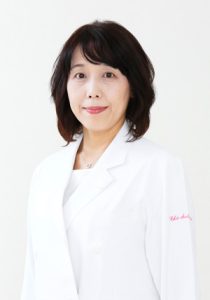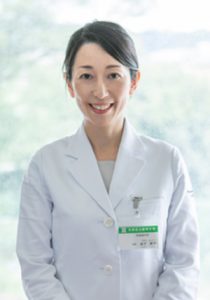Center Activities
Greeting from the Center Director
Achieving a Work-Life Balance

The center was established in 2010 as the Gender Equality Promotion Center under “The Miyako Model for the Flexible Support of Female Medical Researchers”, a subsidized project by the Ministry of Education, Culture, Sports, Science and Technology. We have developed various support programs such as a nursery for sick children and introduction of short-time work positions. The name has been changed to “The Miyako, WLB (Work-Life Balance) Promotion Center” since April 2019. We continue to promote the creation of a comfortable working environment where medical professionals and researchers, regardless of gender, can enthusiastically devote themselves to their research activities and work duties—in order to balance work and family for a fulfilling life and realize the promising future.
Reducing the working hours of medical personnel has become an issue due to the work style reform. We are going to expand our support systems more than ever to provide a variety of perspectives so that the personnel in our university and concerned can live a fulfilling and healthy life. We appreciate your understanding and support.
Director, The Miyako,WLB Promotion Center
Chie Sotozono(Professor, Department of Ophthalmology)
Vice Director

In a society where the awareness of “work style” has changed dramatically, our various support programs such as the establishment of a nursery for sick children and an on-campus day-care center, a future-step researcher system, and a research support staff employment program are undoubtedly bringing many benefits not only to female doctors, but also to all personnel at our university. On the other hand, we still have limited users, some staff and clinical departments, where we can improve.
We would like to do our best to make our activities widely known, so that various support programs will be used more, and at the same time, aim to provide more efficient and great work environment while responding to various needs flexibly.
Taisuke Mori (Professor, Department of Obstetrics and Gynecology)

 When I think back to when I transferred to the university from another school ten years after graduation, I realize that I myself was in the midst of grappling with work-life balance issues. Fortunately, I was able to continue working at the center through the kind offices of, and support measures put in place by, those who had come before me: such as the sick child day-care system that allows online reservations even the night before, and the support staff hiring system that encourages us to engage in research activities despite time constraints.
When I think back to when I transferred to the university from another school ten years after graduation, I realize that I myself was in the midst of grappling with work-life balance issues. Fortunately, I was able to continue working at the center through the kind offices of, and support measures put in place by, those who had come before me: such as the sick child day-care system that allows online reservations even the night before, and the support staff hiring system that encourages us to engage in research activities despite time constraints.
The center’s activities got their start with childcare support, but today they have evolved following changes to the way people work and shifting attitudes and awareness. Now the organization broadly supports the work-life balance of all types of members. We will do our utmost to ensure that the university is a welcoming place to work for everyone.
Yoshiko Kaneko (Lecturer, Education Center)


